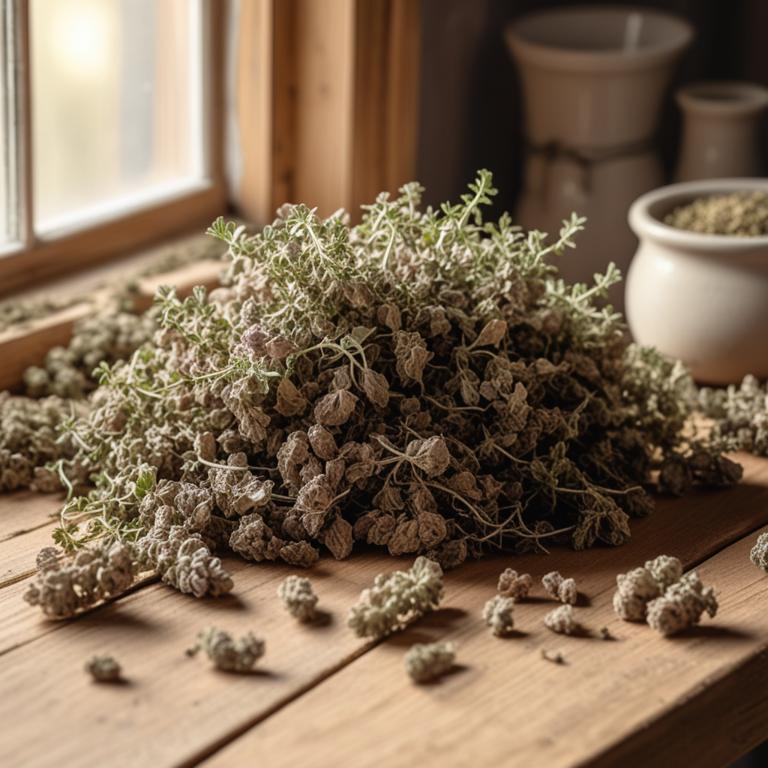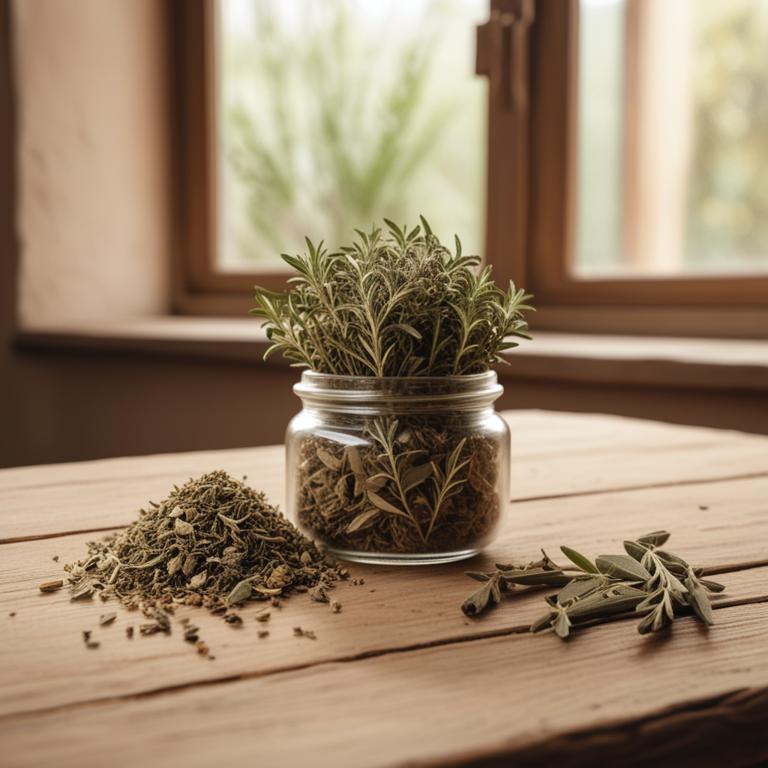Updated: Dec 1, 2024
Frizzy Hair Causes, Medicinal Herbs, and Natural Preparations
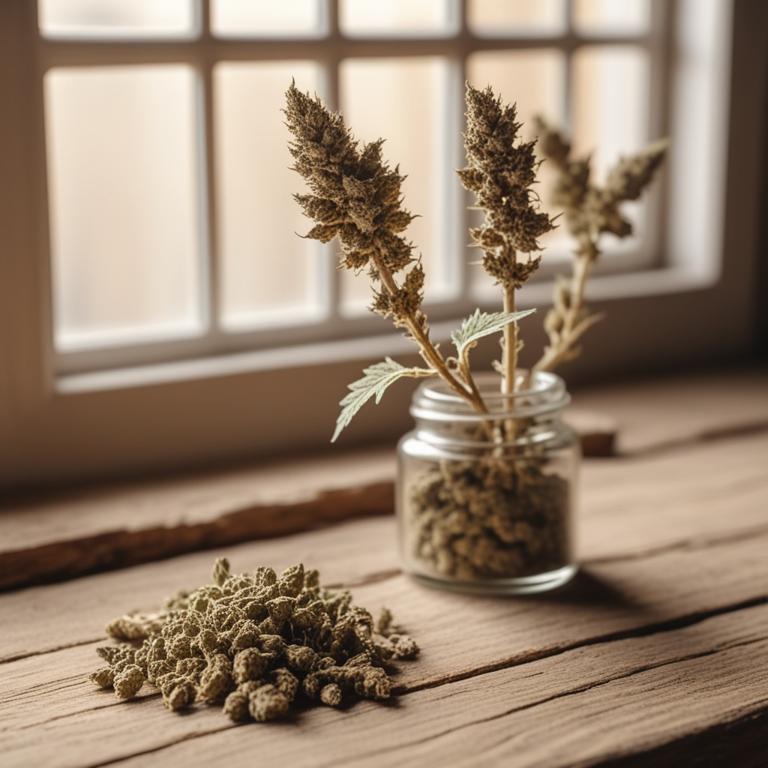
Frizzy hair can be a real nuisance.
When your hair gets frizzy, it's like it has a life of its own - it's all over the place and impossible to style. It's not just about looks, either - frizzy hair can be embarrassing and affect how you feel about yourself. So, what causes it?. Well, it's usually a combination of factors like humidity, heat styling, and using the wrong products for your hair type. When it comes to finding a solution, herbal remedies can be really helpful.
Certain herbs like aloe vera, chamomile, and rosemary have natural properties that can calm and smooth your hair. For example, aloe vera is known for its soothing effects on the scalp and hair, while chamomile can help reduce frizz and add shine. Rosemary, on the other hand, can help stimulate blood flow to the scalp and promote healthy hair growth. To use these herbs, you can try making teas to drink or using them in your hair care routine. For instance, you can brew a cup of rosemary tea and use it as a final rinse after shampooing to add a boost of nutrients to your hair. You can also add aloe vera gel to your hair mask or use chamomile tea as a pre-shampoo treatment to help calm and smooth your locks.
These herbal remedies can be a great way to tame frizzy hair and find a more manageable, beautiful style.
Table of Contents
What causes frizzy hair to occur?
The main causes of frizzy hair are due to a combination of environmental and internal factors.
One of the main causes is humidity - when the air is full of moisture, it makes the hair absorb water and swell up, leading to frizz. On the other hand, a protein deficiency in the hair can cause it to lose its natural elasticity, leading to frizz and breakage.
Hard water, which contains high levels of minerals, can also damage the hair and cause it to become frizzy, as the minerals can strip the hair of its natural oils. Shampoo buildup, or the residue left behind by shampoos and conditioners, can also cause frizz, as it can weigh the hair down and make it look dull and frizzy. Damage to the hair, whether it's from heat styling tools, excessive brushing, or chemical treatments, can also cause the hair to become frizzy, as the damage can disrupt the hair's natural structure.
Lastly, friction, or rubbing the hair against other surfaces, can also cause frizz, as it can cause the hair cuticles to lift and become rough, leading to a frizzy appearance.
How do herbs help to combat frizzy hair?
Using herbs for frizzy hair can be a great way to smooth out your locks.
These natural ingredients can help to calm and soothe your scalp, reducing irritation and inflammation that can lead to frizz. Some herbs have antifungal properties, which can help to control the growth of yeast on the scalp, a common cause of frizz.
Others have antioxidant properties, which can help to protect your hair from damage caused by free radicals in the environment. When used as a hair mask or added to your shampoo, these herbs can help to lock in moisture and reduce frizz. They can also add shine and softness to your hair, leaving it feeling smooth and looking healthy.
Additionally, some herbs have been shown to strengthen hair follicles, reducing breakage and split ends that can contribute to frizzy hair.
What are the main medicinal herbs for soothing frizzy hair?
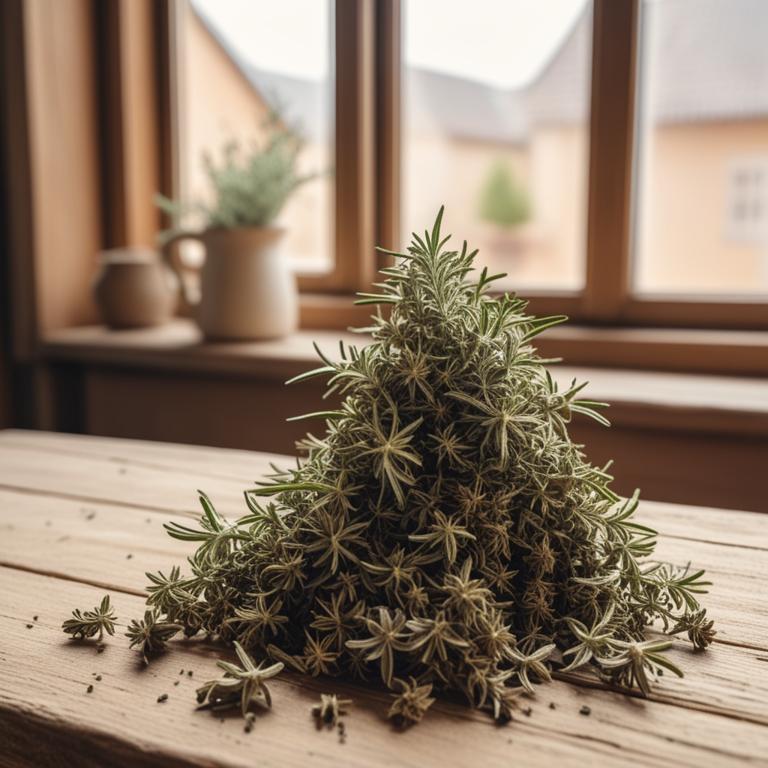
Herbs can be a great solution for frizzy hair.
One herb that can help is Rosemary (Rosmarinus officinalis). Its essential oil contains compounds that improve circulation to the scalp, which can help reduce frizz by strengthening hair follicles. Another herb is Lemon Grass (Cymbopogon citratus), which has antifungal properties that can help control oil production in the scalp. This can prevent excessive oil from weighing down hair, leading to frizz. Tea Tree Oil (Melaleuca alternifolia) is also beneficial, as it has antibacterial properties that can help soothe an itchy scalp and reduce inflammation.
This can help prevent frizz caused by irritation. Lavender (Lavandula angustifolia) is a calming herb that can help reduce stress and anxiety, which can contribute to frizzy hair. Its essential oil can also help regulate oil production and promote healthy hair growth. Thyme (Thymus vulgaris) is another herb that can help reduce frizz. Its essential oil contains compounds that can help balance the pH of the scalp, preventing excessive oil production and frizz.
These herbs can be used in hair care products or applied directly to the hair and scalp for frizz-reducing benefits.
What are the most popular herbal treatments for frizzy hair?
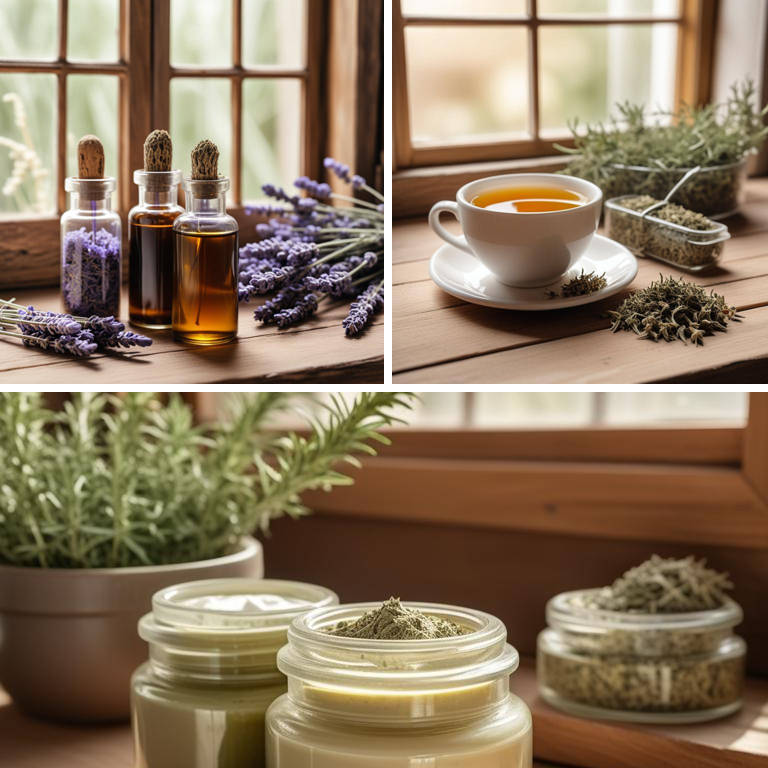
Herbal preparations can help tame frizzy hair because they often contain ingredients that nourish and calm the scalp and hair follicles.
A tincture, which is a concentrated liquid extract, can be added to your shampoo or conditioner to give your hair an extra dose of moisturizing goodness. Decoction is a process of simmering herbs in hot water, which can create a rich liquid that's perfect for using as a pre-shampoo treatment to deeply nourish and repair damaged hair.
Herbal tea, brewed from dried herbs, can also be used as a final rinse after shampooing to add shine and protect your hair from environmental stressors. Some herbal shampoos can help balance the pH of your scalp, reducing frizz and flyaways. Herbal creams, on the other hand, can provide long-lasting hydration and protection for dry, damaged hair.
By using these herbal preparations, you can give your hair the TLC it needs to look and feel its best, even on the frizziest days.
Additional Resources:
What herbs should I avoid if my hair gets frizzy?
If you have frizzy hair, it's best to avoid using herbs that can dry out your locks.
Eucalyptus globulus, also known as eucalyptus, has a dehydrating effect on hair and can make it even frizzier. This is because eucalyptus oil is known to strip hair of its natural moisture, leaving it dry and brittle. Artemisia absinthium, or wormwood, has a similar drying effect on hair. Its oil can penetrate deep into the hair shaft, causing damage and breakage, especially if your hair is already prone to frizz. Using wormwood can make your hair feel stiff and rough to the touch. Hyssopus officinalis, or hyssop, is another herb to steer clear of if you have frizzy hair. Its essential oil can cause irritation and dryness on the scalp, leading to an itchy scalp and even more frizz.
This is because hyssop oil can disrupt the natural balance of the scalp's oil production, causing dryness and irritation. Silybum marianum, or milk thistle, may seem like a harmless herb, but its seed oil can also dry out your hair. This is because it's high in silymarin, a compound that can strip hair of its natural moisture and cause dryness. Lastly, Ginkgo biloba, while great for memory and cognitive function, can have a drying effect on hair. Its oil can cause hair to lose its natural shine and become dull and brittle. This is especially true if you already have dry or damaged hair. Using any of these herbs can make your frizzy hair even worse.
So, it's best to avoid them if you want to keep your hair looking healthy and shiny.
FAQ
Are there any specific herbs that can prevent frizzy hair?
Some herbs may help reduce frizzy hair.
Rosemary and lavender are known to improve hair texture and reduce frizz. Rosemary contains antioxidants that protect hair from damage, while lavender's moisturizing properties help lock in moisture, leaving hair smoother and less frizzy.
These herbs can be used in hair masks or as part of a regular hair care routine.
Is it safe to use herbal remedies for frizzy hair during pregnancy?
When using herbal remedies for frizzy hair during pregnancy, be cautious.
Some herbs may interact with pregnancy hormones or affect the baby's health. For example, saw palmetto can slow fetal development, and licorice root may cause high blood pressure.
Research the specific herb and its potential effects before use.
Are there any herbs that can reduce the frequency of frizzy hair?
Some herbs like aloe vera and saw palmetto may help reduce frizzy hair.
Aloe vera has moisturizing properties that can calm dry ends, while saw palmetto may block excess oil production that can lead to frizz.
Adding these herbs to your hair care routine may help smooth out your locks.
Related Articles
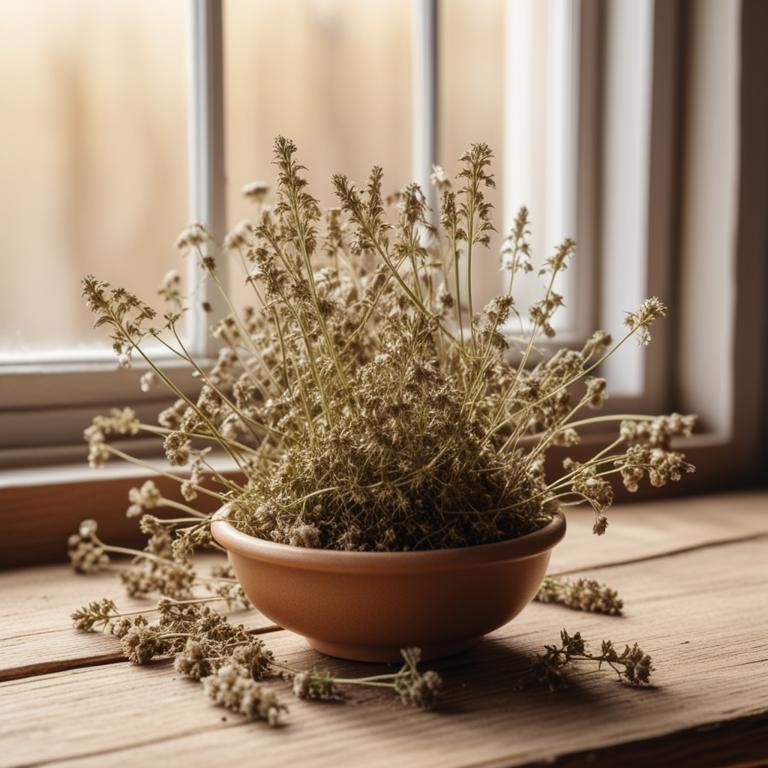
Causes and Treatment of Eye Infection with Medicinal Herbs and Herbal Preparations
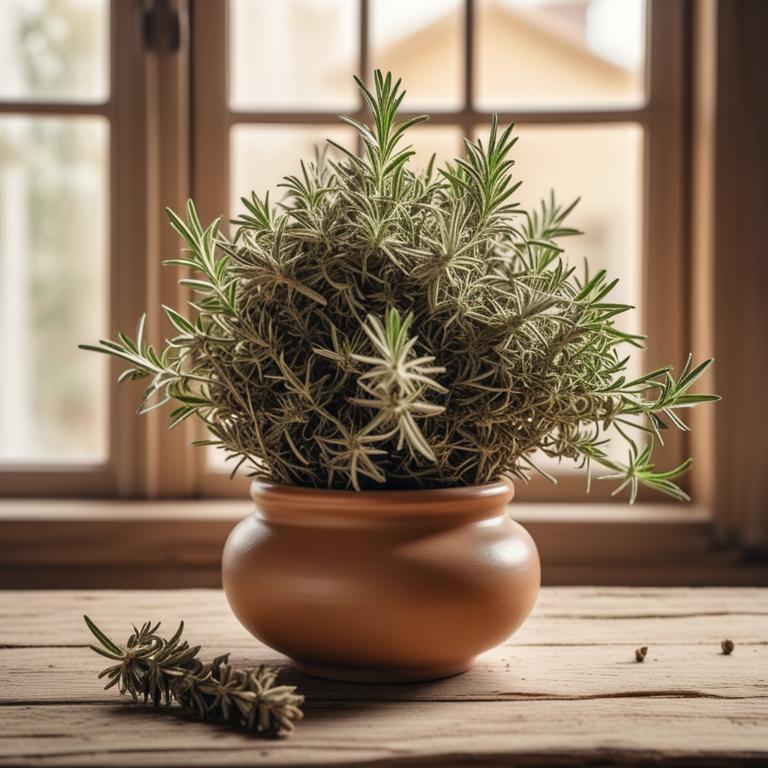
Understanding and Treating Oily Skin with Medicinal Herbs and Preparations
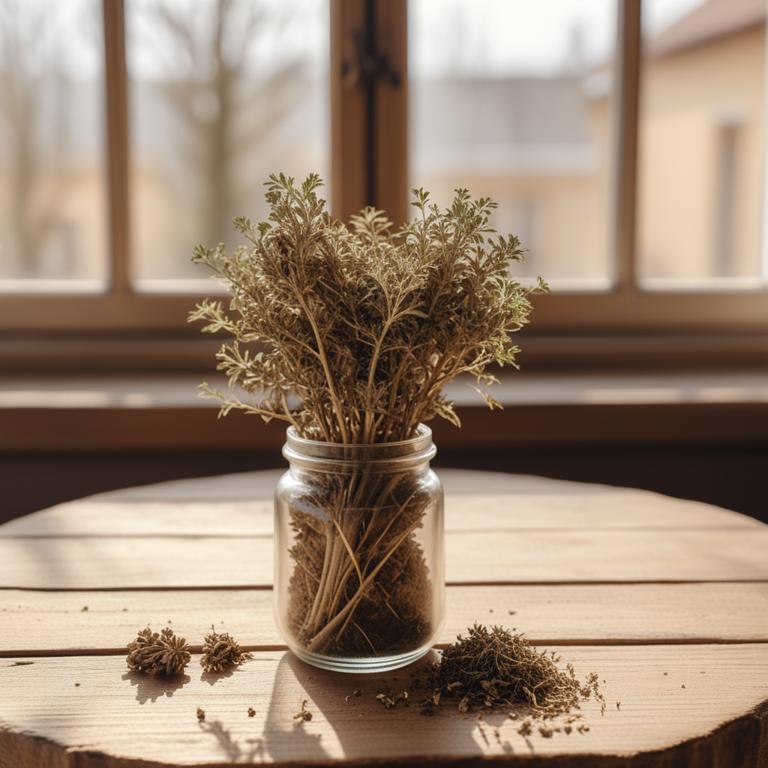
Causes and Remedies for Dark Lips: Medicinal Herbs and Herbal Preparations
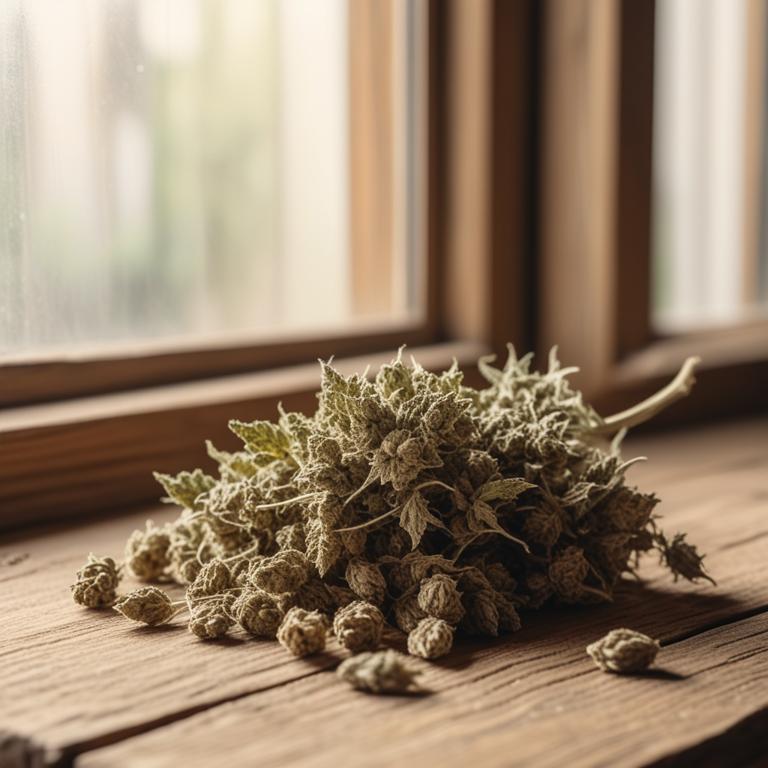
Eczema: Understanding Causes, Medicinal Herbs, and Effective Herbal Preparations

Red Eyes: Causes, Herbal Preparations, and Home Remedies
